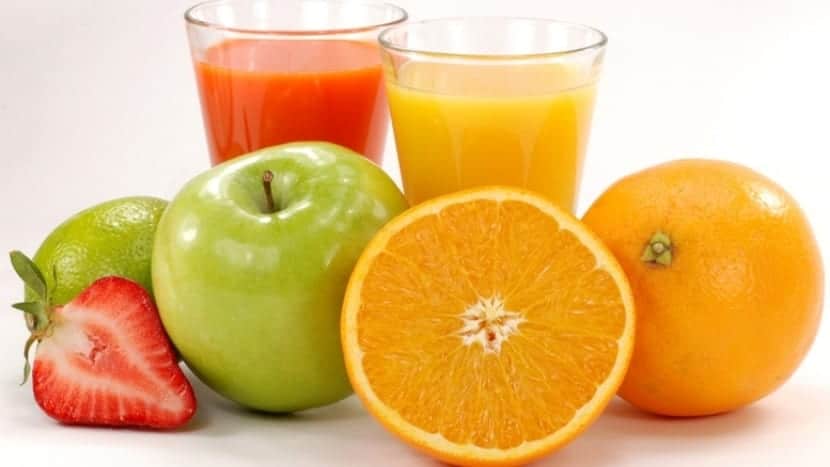
One of the The first foods that are introduced in the baby's diet are fruits, a wide variety of foods rich in vitamins and minerals essential for the body. But all fruits are not the same, despite being a very healthy and recommended food, there are some fruits that the baby should not try during his first year of life.
Some fruits have a high risk of producing food allergies, others are somewhat more difficult to digest and for these reasons, they are not recommended for the delicate and immature stomach of the baby. Usually the introduction of food begins at 6 months, which is what the World Health Organization (WHO) recommends. From that moment, your baby will gradually try different foods until his diet is similar to that of adults.
Introducing food: fruits
If you are not sure which fruits are the ones that you can give your baby, do not worry, we will explain to you below which are the most appropriate fruits for the babyé between 6 and 12 months. In addition, in the links that we leave you will find very complete information on how it should be baby feeding during its first year of life, with important nutritional information. You can also find guidelines on the foods that you should introduce in your baby's diet from 6 months.
Fruits that a baby from 0 to one year old can eat

These are the fruits that you can give your baby from 6 months. Or from the moment your pediatrician indicates, since in some cases there may be exceptions.
The Apple
This fruit is very soft and easy to digest, in addition, the risk of producing intolerances in babies is very low. For this reason, it is one of the first foods to be included with complementary feeding.
The apple is rich in fiber, very important to avoid constipation that the change of diet usually causes. In addition, it contains calcium, iron and essential vitamins such as those of group A, B, C and E and if this was not enough, the apple provides the necessary sugar for the energy contribution that the baby needs.
The pear
As with the apple, the pear is very soft and it is difficult for it to produce intolerance. This fruit it is rich in water, which helps to hydrate the baby. What's more:
- It is rich in fiber
- In minerals like iron, magnesium and calcium
- It contains folic acid and antioxidants
The banana
This fruit is perfect for any diet due to its high potassium content and its natural supply of slow-absorbing carbohydrates. This means that the banana provides energy to the baby for a long time, something essential in this period of discoveries and great achievements.
Citrus

Oranges and mandarins are also appropriate for the baby since you start taking food. They are fruits rich in fiber, vitamin C and essential minerals.
The orange can be given in juice, without adding sugar or any type of sweetenerNot even honey as it can be toxic to babies. You can add orange juice to a porridge of various fruits, although the taste is not usually liked by most babies. On the other hand, the mandarin juice is much sweeter naturally and is usually better accepted by the little ones.
In any case, remember the 3-day pattern between meals. Food should not be introduced at the same time or in consecutive days, in this way, you can see how the baby tolerates the food or if it produces any type of allergic reaction.
In later weeks, you can introduce other foods more susceptible to producing intolerances such as strawberries or peaches. When the moment comes, introduces food during the day to see how it is digested the baby. In this way, you will be able to notice any symptoms and go quickly to the emergency services. In no case is it recommended to give new foods to the baby at night.